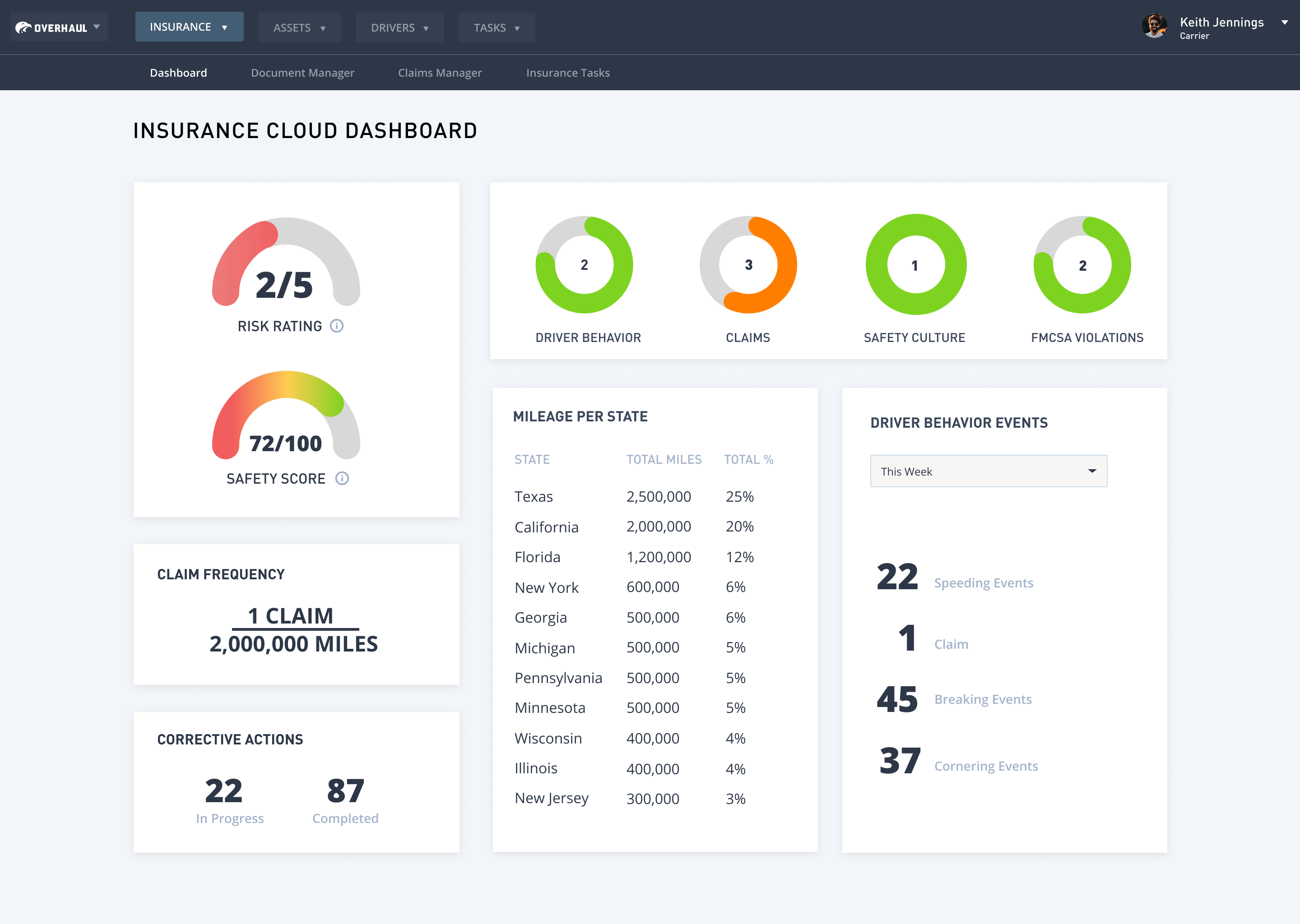Businesses dependent on the physical supply chain face a number of potential roadblocks. Customers expect fast deliveries with visibility into each step, but costs — including transportation and raw materials costs — are rising thanks to inflation and other factors. Meanwhile, there’s a talent shortage, particularly in areas like logistics and operations management, and technical barriers to keeping track of inventory.
Aiming to help overcome a few of the challenges, Barry Conlon and David Broe co-founded FreightWatch, a logistics security services company that they later sold to supply chain visibility platform Sensitech in 2012. After the sale, Conlon and Broe say that they saw a gap in the market to address cargo theft in a more innovative way, harnessing data, telemetry and software.
“Supply chain was moved to the front pages of the newspaper, amplifying the industry with pain points right in the spotlight,” Conlon told TechCrunch in an email interview. “It proved how fragile supply chains are, especially when things go wrong. It forced companies to shift their primary focus to greater transparency and resiliency to course correct immediately, while consumers demand more visibility and expect all brands to deliver the ‘Amazon’ experience.”
So in 2016, Conlon and Broe co-launched Overhaul, which provides visibility software that attempts to anticipate and mitigate freight shipping delays. Using real-time operational and behavioral data, Overhaul provides alerting and performance monitoring alongside basic organizational tools like checklists.
In a show investors are buying into the vision, Overhaul today announced that it raised $38 million in a Series A round led by Edison Partners, with participation from eGateway Capital, StepStone Group and TRM Ventures. Overhaul, in addition, secured a $35 million loan from Stifel Bank, bringing the startup’s total raised to date to just under $100 million.
Conlon says that the cash will be used primarily for R&D and customer acquisition efforts. “We are committed to keeping our investment requirements low, maintaining capital efficiency and to achieve profitability in 2023, setting us apart from our competitors and others in the industry,” he added.

Overhaul’s monitoring dashboard. Image Credits: Overhaul
Overhaul doesn’t exist in a vacuum. Tive, a startup developing supply chain visibility tools, raised $54 million last April. Altana, another rival supply chain visibility platform, bagged $100 million just a few months ago.
What differentiates Overhaul is a strong emphasis on AI and machine learning, Conlon asserts. The platform pulls in all available in-transit telemetry and contextual data, which Overhaul’s data scientists use to build and train AI models for a range of different purposes. For example, Conlon says, one of the models can detect when a cargo load’s security is at risk and alert a security operations team as well as law enforcement.
“Our platform can ingest complex datasets with zero need for new architecture or data structure,” Conlon said. “In the visibility space, companies like Project44 and FourKites have large ambitions but we provide a unique solution with our risk management capabilities that set us apart.”
Whatever the case, Overhaul appears to be growing healthily, with a customer base that now totals over 350 companies. Conlon forecasts that annual recurring revenue will reach $90 million by the end of the year as Overhaul inches its way toward profitability.
One step toward those growth goals was Overhaul’s acquisition of SensiGuard security services from Sensitech in February. In addition to bolstering Overhaul’s platform with visibility and risk monitoring tech, the purchase extended Overhaul’s book of business, adding customers in the tech and pharma industries, while extending Overhaul’s geographic footprint to Brazil, Mexico and the Czech Republic.
One niggle might be securing the next round of funding — not necessarily by any fault of Overhaul. There’s evidence to suggest that supply chain startups, once the darlings of VCs, are less attractive than they once were. According to PitchBook, global supply chain tech startups raised roughly $9 billion in Q2 2022, down 39% from a year earlier.
Conlon tried to assure us that Overhaul hasn’t been massively impacted by the macroeconomics — at least not yet. He pointed to the company’s robust workforce, which now numbers over 650 thanks in part to the SensiGuard acquisition.
“Overhaul has a sustainable model with best in class metrics through customer validation and an enterprise rolodex in pharma, healthcare, technology, 3PLs and food services,” Conlon continued. “We are playing offense while most of the market is reducing investment to extend the runway.”
Overhaul, which taps AI to secure physical supply chains, raises $73M in equity and debt by Kyle Wiggers originally published on TechCrunch

